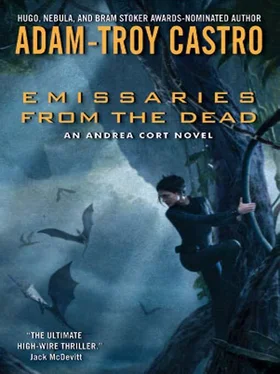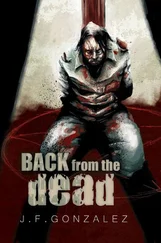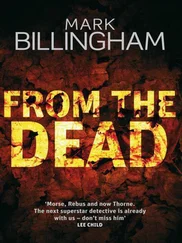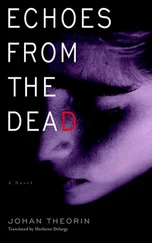Negelein, a talented painter of both landscapes and portraits, hadn’t been able to keep conventional art supplies during the eighteen years he’d served, but he’d produced many thousands of works using implants in his fingertips to daub intangible pigments on projected virtual media. He illustrated almost everything he said with finger-twitches that called forth works he’d produced on One One One: from vivid head shots of the people he spoke about to colorful panoramas of his fellow indentures working on the Habitat’s upside-down horizon. He had one portrait of Warmuth, portraying her as a wide-eyed, sallow-faced gamin placed against a nondescript black background. She looked sad, vulnerable, and alone: a facile characterization that completely contradicted the impression I’d gotten from the other images I’d seen. Against that, he offered almost a dozen studies of Santiago, starting with the portrait of a woman simmering in mid-frown, backlit by a nimbus of glowing red light. It taught me nothing either. But as I studied the work, searching for an answer that wasn’t there, he said, “Most of the people here didn’t realize it, but their entire problem lay in the failure to recognize an alien mind.”
“I suppose we’re not talking about the Brachiators.”
He shook his head. “No. Christina. People had a rough time seeing who she was and what she was about; they just saw this sullen little bitch who was ready to bite your head off the first time they even looked at her funny.”
“Like that incident with Warmuth.”
He chuckled. “Like that. And a dozen others I can name. You didn’t get along with Christina. You experienced her.”
“And you’re saying she had an alien mind?”
He drew a curlicue in midair, dabbed a few lines underneath it, and emerged with a fair-to-middling caricature of me. “I suspect you already have a good idea what I mean, Counselor. When you get to the core of it, we’re all aliens to one another, raised according to some common precepts but otherwise ruled by paradigms far removed from those of the people around us. The tragedy is that we tend to judge others by standards that may make perfect sense to us but which are more likely totally irrelevant to them. That’s what you’re doing to me right now, even though you’re doing an excellent job of hiding it, and that’s what most people did to Christina. By the standard of their own worlds, their own heads, she was an intolerable person. But the fact is, she was as sociable toward them as she knew how to be.”
The man’s pontificating was beginning to wear on me. My yawn, another in a series of symptoms that my post-Intersleep crash was coming on fast, might have been just as inevitable on the most energetic day of my life. But I recovered: “What was she, then? Just socially inept?”
Another curlicue. “Think about her background. Her world had mortgaged its entire population for generations. Her family had no tomorrow greater than endless repetitions of today, no dreams beyond returning home at the end of a shift, no options beyond grinding despair and dull-eyed, grim-faced loyalty to the only possible employer. Their rights were so curtailed that they couldn’t even start families without proving it wouldn’t harm production. I don’t even think she encountered the concept of leisure time at all until she got here. It speaks well of her independent nature that she sold herself offworld as soon as she was able to find another buyer, but by then her routines were set, and she came to work for the Corps acting out the same behavior patterns she showed at home, which happened to be: Keep your head down. Don’t make friends. Don’t share confidences. Don’t question orders. Submerge every personal feeling you have: just concentrate on the work and nothing but the work . From everything she’d been taught, this was appropriate behavior. From the viewpoint of everybody else, it made her a pill and a half. Both viewpoints were accurate as long as you bought their starting positions.”
“And yet,” I noted, “you say you got something out of her.”
“Not just say, did.” He projected an image of Santiago, sitting cross-legged on one of the settlement’s rope bridges while the upside-down horizon of One One One curved away in the background. She wore a form-fitting gray jumpsuit fastened tight at the neck and wrists. Her eyes were hooded, her lips thin and unsmiling, but the image stressed the bound curve of her breasts; and the way the light played across her cheeks suggested Negelein, at least, considered her uncommonly beautiful. “I run a little art class here, not a big one, but something for people to do off-hours when they’re not jumping through Gibb’s hoops. I have four, maybe five, students at a time. Nobody produces spectacular work, but then nobody’s required to if they’re only doing it for their own amusement. Christina started visiting within two weeks of her arrival here. She would show up late so she didn’t have to make small talk, listen a little bit, then leave early so she didn’t have to talk with anyone on the way out. The first couple of times she visited, I thought she was just deciding it wasn’t for her. But then the third time she approached me in private to ask a question.”
“What?”
“She asked me to explain what art was good for.”
I wasn’t sure I could have produced a satisfactory answer myself as art just slides off me like I’m a frictionless surface. But I did my best to look duly horrified. “What did you say?”
“Well,” he said, “given that it’s a major part of who I am, a major part of what I need to stay sane, and for me a major part of what makes life worth living, I could have fired off a withering reply that punished her for being ignorant. About a dozen occurred to me before I even opened my mouth. But somehow I recognized it was a well-meaning question, and said, ‘If you make some, maybe you’ll figure it out.’ Not long after that we scheduled private lessons.”
“Was she any good?”
He rolled his eyes. “ Was she any good? Please. Good didn’t enter into it. She’d never picked up the basics of perspective or shading or composition or even appreciation: nothing that permits a socialized eye to look at a blob of color and linework and produce the reaction, Gee, that’s pretty . She couldn’t even produce a workable abstract. She didn’t even have the background she would have needed to recognize the building blocks, and may have been too deprived of basic visual education for far too long to ever develop a meaningful imagination. But being good wasn’t the point. Letting out her feelings was. And as she produced one hopeless, primitive piece after another, she started stumbling over the things she would have said if she had the vocabulary. The things she was too alien to say to anybody else.”
“Such as.”
Negelein’s voice grew soft at the moment he seemed to remember that the person he’d been talking about was dead: “Such as what it was like, for her, to spend so much of her life in a cage.”
His eyes welled. No question in my mind: he was seeing her. But which her? A real Christina Santiago, who had revealed herself to him? An imagined version of her he’d projected upon a woman he’d barely known at all? A woman he’d loved, or one he’d pitied? I had no doubt that his grief was genuine, but that meant nothing; some people grieve as easily as other people breathe, and the grief-stricken include some of the very same people who brought on the grief by killing.
After a moment, I asked him, “Who do you think killed her, bondsman?”
He dabbed at his eyes. “Mr. Gibb says the AIsource did, but that doesn’t exactly make sense to me. I can’t see the AIsource doing something that pointless. Maybe something I did contributed. Wouldn’t that be a special trip through hell.”
Читать дальше












